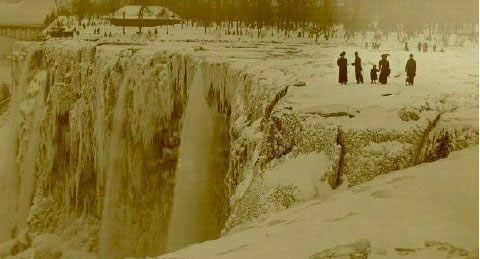May 27, 2007
Blogging at his new digs, Stephen Den Beste has decided that these topics are too annoying to have comments on......Well, bottom feeding, link whore that I am, I'm going to have to
post on them.
One of the Brickmuppet's crack team of science babes, seems a tad un-enthused at the prospect, but she does pass on a few alternate energy related tidbits and a dogeared copy of The Fountainhead.
**********************************************************
ALTERNATE ENERGY
Alternate energy is very much a religious type discussion with some people and they view various energy types as good or bad and are about as consistent and rational as a shrimp eating homophobe quoting Leviticus.
To them, nuclear power is almost invariably bad....hell...Greenpeace which is absolutely one of the groups that has dealing with global warming at the top of their priority list has just put out their white paper on energy policy....they recommend going to....natural gas...
Umm......yeah.
The link has a thoughtful analysis by David Bradish read the whole thing.
(The Greenpeace paper without commentary can be found here.)
They are very down on nukes despite their stated belief that greenhouse gasses are the primary threat to the environment.
This is silly. Well, actually, it is tragic.
Natural Gas is a fossil fuel, and a mere subset of the total finite petroleum reserves....therefore as far as supply, it is a step back. If one is concerned primarily about anthropogenic global warming then it is still an issue...it is cleaner burning because of the lack of impurities, but the energy is released by the oxidation of the nearly equal amounts of hydrogen, carbon and oxygen yielding the production of CO2 and water.
More fashionable alternate energy schemes, such as hydrogen and biofuels, are not good energy producers. They are energy carriers.
Biofuels take energy to produce.
Organic matter is put into a reactor, in some cases it is fermented to produce alcohol of some type or it is rendered in the thermal deplymerization process....then it is refined to produce a usable fuel and other by products.
This takes power....even the fermentation process takes pressurization temperature control and a bit of "cooking". (Modern breweries still require electricity...which results in less poisoning and year round production.)
Some arrangements with exceptionally rich feedstocks can produce, after an initial start-up injection of power, near break even,or even a small surplus of fuel not used to ferment can be produced...but it is not a viable process for producing large quantities of fuel.
This holds doubly true for Hydrogen. Given the lack of a free H2 supply, one must crack hydrogen bonds....this requires a LOT of power (but less if your feedstock is not water, but hydrocarbons....ie...oil).
Thus, the power to create the hydrogen or refine the biofuel must come from somewhere else.Otherwise the scheme becomes worthy of the Underpants Gnomes...but in a chemical rather than business sense.
Note that given external power supplies these can become viable. (Hydrogen less so, given its handling issues and low density)
I've blogged like a broken record on thermal depolymerization before, and I'm blogging on it now because I think it has considerable potential for dealing with our waste and liquid fuel issues. Others talk about this here, here, here and here.
The process basically speeds up the earths oil production process by heating organic matter to break it down into something resembling petroleum which can then be refined into other petroleum products. There has been some criticism of the company because of smell issues and the limited output but the plant in Carthage uses its own processed fuel to run itself and sells the surplus. The ability to do this this is a function of its rich feedstock (poultry scraps) but it is in fact a big step forward.
Note that the other feed stocks such as plastics, raw sewage and other organic waste are unlikely to break even...but with external power this process has the potential to kill 2 birds with one stone, waste disposal, and fuel production. Even if the yield did not replace all petroleum it would be a big chunk and because its not digging up long buried carbon but using already extant hydrocarbons it is actually "carbon neutral". It can produce biodiesel which can run in regular vehicles with additives and thus is non disruptive of existing infrastructure.
Most of the opposition to the plans seem to stem from quasi-religious thinking and resentment that the pilot plant was facilitated in part by Bush2 (who is an avid supporter of the process..which is enough to make it irrelevant to some people)
"With external power"
Well what will provide that power exactly ?
Solar: Everybody loves solar, but it has all kinds of limitations. It's really impractical north of the Mason Dixon line and it only works in...um...daylight (duh) the cells are currently expensive and there are these things called clouds.
Space-based solar arrays were seriously proposed in the late 70'sand early 80's when it was believed that NASAs space shuttle would get launch costs down to a point where going to orbit would be like driving a truck from New York to LA. Satellites in geostationary orbit would beam microwaves down to earth, preferably in deserts, which would be converted into electricity and distributed.
There are 3 problems with this.
1:The microwaves are orders of magnitude more powerful than is currently allowable forexposureto humans. If the health issues do prove to be bogus the luddites are likely to kill it out of paranoia.
2: The frequencies are already used for Wi-Fi networks...something that was unforeseen when this tech was proposed.....we may have waited to long since people like their Wi-Fi and would have to give it up if the current designs were built.
3: Launch costs are greater in adjusted dollars for the "reuseable" space shuttle than disposable boosters...and those aren't currently cheap either.
It may well become practical in the future and could well provide power to a moon or mars colony using relay satellites or Lagrange point orbits....but as much a sit pains me to type this I don't think it is viable right now or in the near future.
OTOH, ~25,000.00 dollars will buy you a kit that will include solar arrays, a windmill generator, a backup diesel generator, batteries for nighttime use and get you off the grid!
This is cool!
If I can, I plan to do this eventually, it will not pay for itself for a decade or more but it is freedom and individuality personified (it's also work as one must fix ones own stuff).
This is good not just for raving milquetoast individualists like myself but for the nation as a whole as it takes a load off the grid and decentralizes power production and reduces individual dependence. Politically its a win for a righty like me as it reinforces individualism...
The windmill allows this system much farther north as the wind blows more in the winter. Some of them even operate in Alaska, but given the loong winter nights there I'm not sure that its practical that far north.
Most of the continental US might be able to do this and with the costs of durable solar panels plummeting, it may become cheaper, and more popular outside of the circle of geeky hobbyists like myself.
(the solar panels are only part of the cost, the batteries, windmill, dynamo, and backup generator cost a lot as do the DC appliances and converters, which is why it costs roughly 25 grand.)
But for the actual grid....not so much...solar has some potential in the southern sun belt, but it is not a national solution.
There have been some recent developments in geothermal power.These are exceedingly interesting but not fully developed.
Hydroelectric has a niche to be sure, but it has its own set of issues. And requires lots of water so it is only available in certain areas...most of which, at least in this country, have it already.
Coal...even if you are completely unconcerned with CO2 coal is filthy, and terribly polluting....its also an excellent source of carbon for industrial applications.
Sorry guys...the future of energy, even if we switch to electric cars...is going to be ATOMIC!!!
Pebblebed nuclear reactors and other "intrinsically safe" designs have a huge potential for development and don't pollute to any great extent...if we allowed breeder reactors (particularly thorium breeders )they would pollute even less and sip fuel.
For isolated locations and the developing world a class of "portable" low cost safe and nonproliferative reactors are being developed in Japan and South Africa.
The Japanese reactor, built by Toshiba is being considered for installation in the town of Galena Alaska in 2010. The reactor would seem to be a good fit for the small isolated community that now relies on a diesel generator. A similar project has been proposed by Kirk Sorensen, of the "Energy From Thorium"blog using cheaper and safer thorium as a fuel. The interesting liquid salt reactor he has designed can be seen here in both word and power point with some informed discussion.
These two are geared for small communities and developing countries as well as backup power sources in cities...Like the off-grid residences mentioned earlier, these small reactors have the potential to make our energy grid far more decentralized and robust...not only against terrorism or foreign attack but natural disasters and human screw ups as well. A good overview of recent reactor designs can be found here well as here at the NRC which is currently reviewing for approval a record number of reactor types.
Nukes can make many of the silly sounding biofuel ideas actually work...if battery tech makes high yield non-toxic electric cars practical, (batteries are currently hard to dispose of due to toxicity) nukes can charge them...with out nukes...there aren't any real alternatives to the status quo, which is running out. Those who are rabidly anti nuke...probably don't need to be taken terribly seriously on the environment.
We need some real incentives for nuclear power, which, much as it pains me to say it are unlikely to come from.....
******************************************
"BIG L" LIBERTARIANISM
The Libertarian party was formed in 1971 and has been tilting at windmills ever since. In theory, they share a lot with Goldwater conservatives like myself but their view of the role of government has gotten progressively narrower to the point that many seem to favor a governmental structure similar to the unsuccessful Articles of Confederation note that under the constitution there are some things that congress is supposed to do...
The Congress shall have power to lay and collect taxes, duties, imposts and excises, to pay the debts and provide for the common defense and general welfare of the United States; but all duties, imposts and excises shall be uniform throughout the United States;
To borrow money on the credit of the United States;
To regulate commerce with foreign nations, and among the several states, and with the Indian tribes;
To establish a uniform rule of naturalization, and uniform laws on the subject of bankruptcies throughout the United States;
To coin money, regulate the value thereof, and of foreign coin, and fix the standard of weights and measures;
To provide for the punishment of counterfeiting the securities and current coin of the United States;
To establish post offices and post roads;
To promote the progress of science and useful arts, by securing for limited times to authors and inventors the exclusive right to their respective writings and discoveries;
To constitute tribunals inferior to the Supreme Court;
To define and punish piracies and felonies committed on the high seas, and offenses against the law of nations;
To declare war, grant letters of marque and reprisal, and make rules concerning captures on land and water;
To raise and support armies, but no appropriation of money to that use shall be for a longer term than two years;
To provide and maintain a navy;
To make rules for the government and regulation of the land and naval forces;
To provide for calling forth the militia to execute the laws of the union, suppress insurrections and repel invasions;
To provide for organizing, arming, and disciplining, the militia, and for governing such part of them as may be employed in the service of the United States, reserving to the states respectively, the appointment of the officers, and the authority of training the militia according to the discipline prescribed by Congress;
OTOH that is in theory IT ...period....all other powers being the purview of the states as per the10th amendment....a topic for another time.
Note that infrastructure (postal roads) is specifically listed as is INTERSTATE commerce but this is a far smaller list than we have now....
The libertarians have a big problem running for congress because they don't run for dog catcher first,(believing there is no role for government in dog catching) they tend to think that those "other powers are intrusions". Trash collection in cities, sanitation and various other things that are supposed to be local the Libertarians tend to be opposed to too.
Note that it is THEY, not the Democrats who are the closest to Thomas Jefferson and Madison in political outlook, and like those two their view are both laudable and problematic. Jefferson as president conducted the Louisiana purchase....a constitutionally fuzzy action under the Jeffersonian ideal...but acceptable to the Federalists.
Personally, I am much more a Federalist or Whig, I think the
congress should be limited in what it does to the limits of the
constitution, but that giving the list above, this should not preclude
setting energy policy, (carbon taxes for instance) or Hamiltonian
financial initiatives like the now defunct US Bank. Likewise, immunizations can certainly be considered part of the common defense against communicable diseases.
What I'd like to see, but am unlikely to, is the federal government eliminate
most federal programs, but give block grants to the states and
territories instead of said programs apportion them as per population
and then we'd always have 55 little experiments going on to see how
best to do things, personalized to the specific local, cultural, and
economic needs of each state. (there is more diversity than people
realize, Delaware and Rhode Island are both small northeastern coastal
states...yet their economies, culture and demographics are quite
different....the differences between other states are fare greater) ....but I digress.
Note that if it were not for their foreign policy in the current crisis, I could easily put aside my quibbles and vote for the Libertarians, they are far closer to my ideals than the democrats, who are socialists with Maoist tendencies, or the Republicans who are once again moving away from their ideals that Goldwater and Reagan helped them rediscover.
In foreign policy, the Libertarians are, I fear, quite naive. Note though, that their former presidential candidate Ron Paul was unfairly maligned and rather misquoted for pointing out that many of the worlds issues come from us having meddled in international affairs.
He is actually partly right, but those issues that aren't the result of Islamism or the fallout from the collapse of the colonial powers stem from our involvement in WW1....which we've been dealing with ever since. The Libertarian view is that if we simply come home, cut all foreign aid and become as neutral as Switzerland peace will break out all over.
It will not.
Like it or not we are a great power and that carries international obligations, ethical as well as military ones. The current situation is unpleasant but it is a war the Islamic world has been waging since long before this young republic existed. (and indeed our unexpected and unavoidable involvement in it was our first foreign war...which still has some relevance) The fact that we are trying to get the people in Iraq, Afghanistan and other places on their own two feet is not just a noble thing, it is also enlightened self interest...wait that dovetails nicely into....
********************************************************
OBJECTIVISM:
(I don't even pretend to understand psycho-epistemology.)
However, I do think that the ideals and concepts are deeply important, especially in an age filled with a pervasive sense of entitlement and resentment of success.
I also think that Objectivism gets a bit of a bum rap as a result of its most enthusiastic adherents who treat Rand's work as gospel...literally....and thereby utterly miss the point.
Full disclosure...I have been non objectivist in having been the recipient of charity in that I got my very first computer from a friend who was throwing away what became the first of my...
*********************************************************
MAC's
I like Mac's they're easy to use, even for computer un-savvy people like me.
I'm not knowledgeable enough about computers to really compare their benefits....but....

...I like Mac's....
Posted by: The Brickmuppet at
06:32 AM
| Comments (1)
| Add Comment
Post contains 2877 words, total size 24 kb.
May 26, 2007

Now to be sure, we are entering a warming period...and have warmed rather dramatically since the early 20th century.
How dramatically?....Lookee...

That's Niagara Falls...That's people walking across Niagara Falls in 1911...the last year it froze, note that in the early years of the Republic it froze solid several times.
We do have a huge amount of warming and CO2 levels are noticeably higher than they seem to have been in preindustrial times. Now the science of measuring these is less precise than some would like to admit, but we are, nevertheless, talking about a 20 to 37% increase in CO2 depending on the study...which is likely outside even a considerable margin of error.
CO2 is a greenhouse gas...it is not a very efficient one compared to water vapor and methane, but it does work and much of the CO2 being added to the atmosphere is being released from deposits that were sequestered in...say...the carboniferous period when swamps turned to coal.
So why am I not working to draft Gore?
Because I don't think this is the end of the world.
Climate has varied dramatically over the last 8000 years alone. The polar bears survived...as evidence... polar bears.
Despite some disruptions...like the submergence of several coral atolls in the Pacific (which may have precipitated the migration of the Maori to New Zealand.) ....the shifting of arable bands and whatnot.
Civilization tended to do better during warm periods....
This is not to say I'm as unconcerned as this guy... good grief.
Jerry Pournelle's comments on the first Greenland barley crop in 600 years are instructive.
Russell Seitz called yesterday to tell me that Greenlanders brought in the first barley harvest in over 600 years. That's global warming.
Viking settlements in Greenland endured if not exactly thrived between approximately 1000 AD and 1300 AD. From 1330 to 1410 they dwindled and died. While there are more detailed accounts and explanations, the simple fact is that before 1325 it was warm enough to support the colonies, and after 1330 it got cold and they died.
Note that the west coast of Greenland is not part of the Gulf Stream climate system. It is not closely coupled with Northern Europe, which also enjoyed a Medieval Warming from somewhere before 800 AD until 1330 when the Little Ice Age began. Kyoto addicts have dismissed that warming period as weather, not climate, a local phenomenon and not an indication that the globe was warmer in historical times.
The "hockey stick" theory is that global temperatures have been flat until recently and how are headed higher and higher in a dramatic manner. The long period of flat temperatures is inferred from ice cores, lake sediments, tree rings, and other such data. The algorithms for converting these data into temperatures is the critical item, and there is considerable controversy over its validity. The hockey stick theorists long resisted publication of their algorithm.
In computer science, Garbage In -- Garbage Out is an axiom; but of course if I can manipulate the algorithms in a secret fashion, I can get any output from any input.
The bottom line of all this seems clear enough: there is global warming. As Arrhenius told us about the turn of the Century, increased levels of CO2 can contribute to that warming, and there is no reason to suppose that is not true. The warming trend began before CO2 levels rose enough to cause it; the warming trend began early in the 19th Century as the Little Ice Age ended.
How much CO2 contributes to the present warming trend is unknown. It did not contribute to the Medieval Warming. There is considerable evidence that during the Medieval Warm period the Earth's temperature was higher than it is at present.
We survived the Medieval Warm, as we survived the Little Ice Age. Civilizations thrived during the Medieval Warming Period.
It would be useful to know just what is happening, and whether we can do anything about it. One thing we could do is paint all our roofs white. For some reason there is no national panic about dark colored roofs.
Note that while he might be called a "denialist "Dr. Pournelle is not denying global warming and he agrees that it is important to study it.
Also, the white roof idea is not as silly or flippant as it might sound....I think it is quite a good one...urbanization has drastically changed the albedo of the planet...a study of mitigating that might be useful....
If, as some believe, we are in a natural period of warming, due to solar activity or other causes, and if (as seems very likely) the CO2 levels are much higher due to pulling out long lost carbon, then we could see a really fast disruptive warming.
However, these in my mind are not as worrisome as some other threats...and given the fact that people, polar bears and kitty cats weathered the changes just between Roman times and now (Roman Warm Period/ Dark ages Cold Period/ Medieval Warm Period/ Little Ice Age...scary current spike)
the concern over climate change seems overblown
What, you may ask, are these far more pressing issues?
This is terrifying. Heavy metals like mercury, cause nervous system disorders, insanity and death. They are introduced into the environment mainly by disposal of electronics, batteries and the burning of coal. In theory this should be mitigated by curbing CO2 emissions given that a big percentage of the mercury release into the oceans is via coal. But the focus on CO2 is as much about socialist leveling schemes as the environment. Kyoto...which Bill Clinton , not Bush2 rejected BTW...gives heavily polluting 3rd world countries a pass to catch up to the US Europe and Japan. all the while chugging away...since the only thing Kyoto worries about is CO2 their far worse records on other pollutants get a pass.While the FDA link is scary enough....look what mercury poisoning did to Minamata Japan. This stuff concentrates through the food chain (like any pollutant) and is very hard to get out. This is insidious but is lost in the Global Warming buzz. Mitigating strategies in the short term are things like the Presidents Clear Skies Initiative
which was much maligned but facilitates reductions of up to 70% in non CO2 emissions. The singular focus on CO2 has caused this to go virtually ignored when not outright opposed. It also reduces pressure for more of this sort of thing not just here but abroad where it is really needed. Massive increases in the size and number of batteries for hybrid and electric cars and an increase in the use of mercury vapor containing bulbs...as individually benign as they may be...contribute to this problem....but they (in theory) reduceCO2 so they are loved by the Greens.... focus on the wrong thing is actively counterproductive.
Plastics in the Ocean
In the North Pacific, plastics now outweigh plankton. Besides the slow leeching of toxins into the sea, plastics....which often "behave" like jellyfish or other plankton...are ingested by whales, sea turtles and other already stressed organisms which then choke, starve, or are poisoned. There isn't ANY correlation between this and CO2 reduction....so it is not getting near the attention it deserves. Mitigation might involve simply adding cornstarch to most plastics, bounties for plastics recovered....(if theres more of it than plankton, a few hears of trawling for it might be profitable...especially if sold to recyclers)....and a ban on some types of plastic products. It would be dealing with a far more alien threat than CO2 and warmth....but....no...
Acid Rain
I have little respect for the Greens....but here is where my respect resides, because this is one of the few things they were well and truly right about....and thanks to them much has been done to mitigate this...more than anything in fact, but emissions (especially from those 3rd world nations that get a pass from Kyoto) are still wiping out whole swaths of continents and destroying areas never touched by it before. In the US, the advent of ultra low sulfur diesel and the aforementioned Clear Skies initiative promise vast improvements, but the lack of credit we get does nothing to encourage the nations with far worse records than us on this...and the attention sucked up by global warming makes this issue seem...well so damned '70s...
Deforestation
Actually getting some attention because of the blinkered notion that forests are efficient carbon sinks, deforestation is a tremendous eco-nightmare in the nations that get Kyoto passes. The US is doing better than anyone in this regard, and now has far more trees than we had 150 years ago...though, cropland alone, not to mention development make it unlikely we will approach the tree #s of 1800. Tree farms, hunting preserves and nature preserves are good ways of mitigating this, but the first two are anathema to the anti-capitalist Greens. The developing world needs anything that will add rather than detract from their economies....the first two do. Tree farms if used with old growth hedgerows can be fairly good for biodiversity, and the success of bringing game species back from extinction has been demonstrated in the US with the alligator....and rather too well with the white tailed deer. In African countries where poaching is controlled good results have been obtained with elephants...deforestation contributes to a myriad of other issues , desertification, ground water depletion, erosion/runoff related pollution amongst them....but in the eyes of many the front line of the fight for the environment is harassing a family in an SUV and not the shaving of other nations forests...
Deep Sea Ecosystem depletion
Deep sea species take decades to mature, so any sustainable fishery is unlikely, yet this is the area getting massively exploited right now... this is getting reported, but the claims of total oceanic biosphere collapse sound so far fetched that they are, due to the 'boy who cried wolf' effect, put by many on the right in the global warming file...and on the left taken as a call to action on global warming...which is tangentially if at all related to fish at that depth. And so this problem is all but ignored....particularly when the Sea Shepherd assholes become the face of that issue. The bitch of it is, total ecological collapse of the oceans may not be much of an exaggeration....we simply don't know much about that band of life and what we do know supports rather than detracts from this awful scenario,
I haven't even talked at length about water issues, ozone depletion, killer asteroids, emerging diseases, robot uprisings, or nuclear or biological terrorism....
As for solutions to GW and the more pressing problems, well, the BMCTOSB's are on the job, looking at nuclear power, biofuels, geothermal and niche elements like solar, and debunking some silly ones. Rest assured though, if anyone is the least bit serious about this....nuclear is on the menu.
The science babes, will,of course be giving periodic reports here.
Posted by: The Brickmuppet at
06:53 PM
| No Comments
| Add Comment
Post contains 2029 words, total size 15 kb.
May 15, 2007

One of the Brickmuppets crack team of science babes brings us this Jim Fraiser post on what may be a big step forward in biofuels.
It seems that a company named Green Star Products has completed a low cost algal farm that is, in theory, suitable for quick setup nearly anywhere outside of polar/subpolar regions.
Oil from algae produces about 50 times the yield of the best oilseed crops, and this sort of arrangement might not displace food crops to the same extent as, say ethanol from corn, which is always struck me as a dubious idea.
I'm more excited by thermal depolymerization as it doubles as waste disposal.
This however is really interesting. Note that there are considerable hurdles (read the whole post for Fraiser's thoughts on that) and I still think that without lots of cheap nuclear power to provide the heat that thermal depolymerization...and to a lesser extent algae refining...need then the future of biofuels is marginal at best.
WITH nuclear power, they could potentially produce high density, carbon neutral, liquid fuel with little disadvantages over natural petroleum....a win-win for everybody except anti-nuke hysterics and the most hardcore greens.
Posted by: The Brickmuppet at
02:02 AM
| No Comments
| Add Comment
Post contains 194 words, total size 2 kb.
66 queries taking 0.2775 seconds, 165 records returned.
Powered by Minx 1.1.6c-pink.









